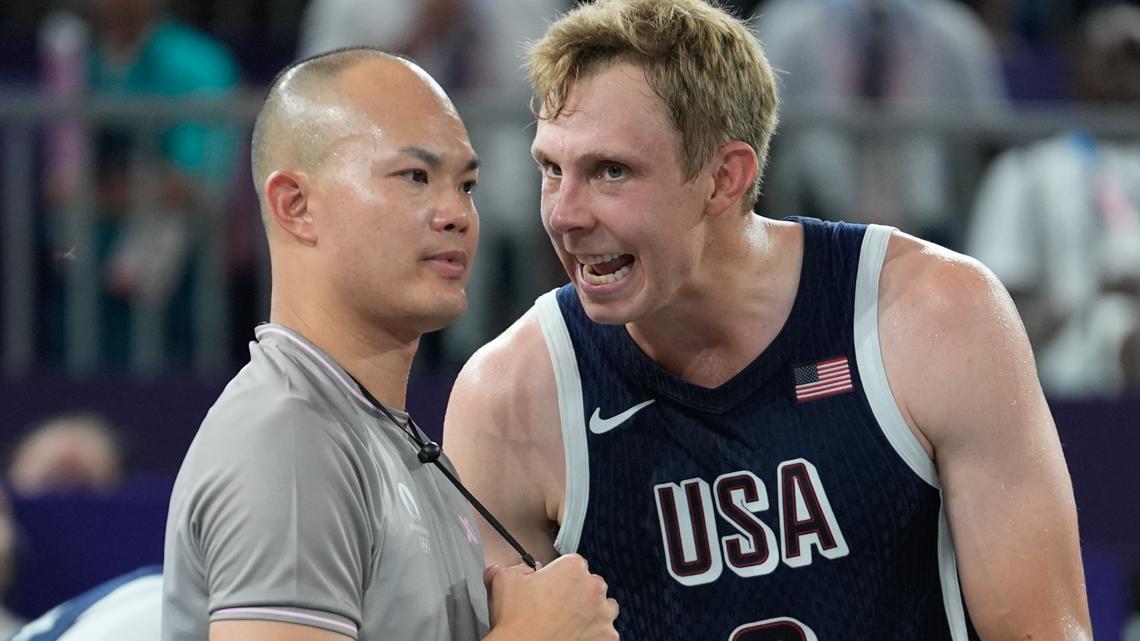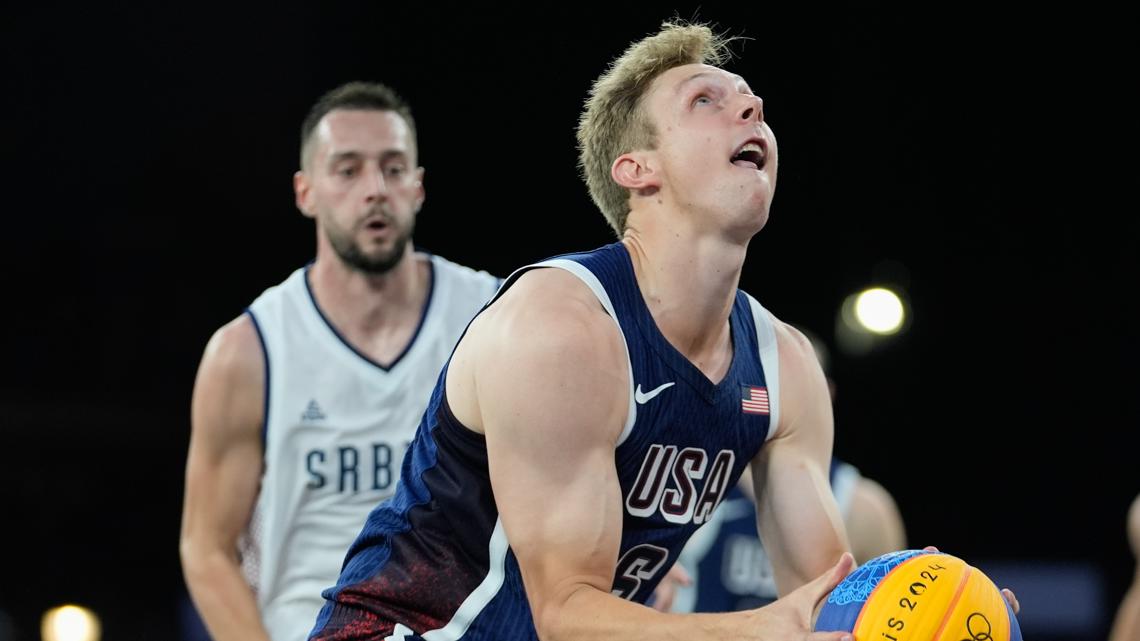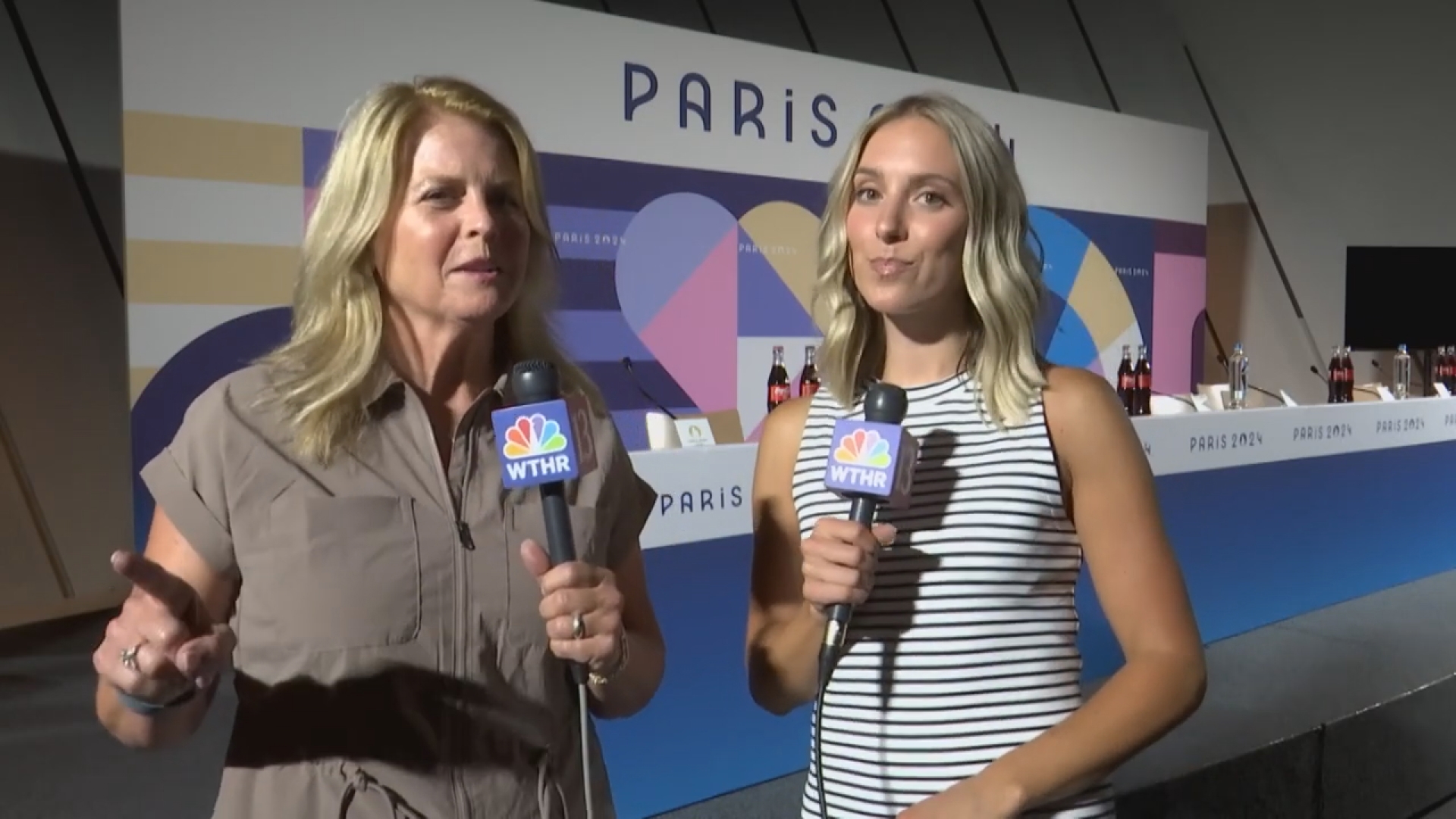FORT WAYNE, Ind. — Canyon Barry is a part-time basketball player.
His full-time job is system engineer for a defense and space contractor.
Barry, who will take the courts at the Paris Games searching for a 3x3 gold medal for the U.S. men's team, has an undergraduate degree from the College of Charleston is in physics and a master’s degree in nuclear engineering is from Florida. So, is he a rocket scientist? A nuclear physicist?
“Scientist, engineer, problem-solver, take your pick,” Barry said, with a slight chuckle and a wink.
As for what his work entails with the aerospace and defense company L3Harris Technologies, Barry is tightlipped.
“I’ve talked to L3Harris and they’ve said to not give too much specifics in terms of programs that we’re working on for clearance and security reasons,” he said. “But we have a great international compliance and trade security. (And) they briefed me on all this stuff and just said kind of leave it at systems engineering.”
The US men lost their opener Tuesday night against Serbia. The Americans play Poland Wednesday.


When not with teammates Jimmer Fredette, Kareem Maddox and Dylan Travis preparing for the Olympics, the son of Hall of Famer and NBA champion Rick Barry is often on his laptop working on projects for L3Harris Technologies.
Because of the team’s international travel in the run up to the Paris Games, Barry would be taking zoom calls and doing his day job in the middle of the night while the rest of the team was sleeping.
The 30-year-old Barry appreciates the support he’s received from the company as he's prepared for the Olympics. He’s on vacation from his job during the games to devote his full attention to the chase for gold.
“Really fortunate to work for that company and what they’ve allowed me to do,” Barry said. “And I also think that they’ve really matched up with the Olympic spirit because they protect our U.S. war fighters abroad and kind of bringing that American spirit is really cool.”
The 6-foot-5 Barry was interested in science from a young age, and despite being born into a basketball family, his mother Lynn Barry made academics the top priority in their home.
“She would always say: ‘You never know what’s going to happen with sports in terms of injuries or when might be your last game,’” he said. “So having … a career that you’re passionate about and can kind of have an identity outside of sports means a lot to me. Because now, when the ball does stop bouncing, I know that I have a passion and a job that I can go back to that I find fulfillment in and can really enjoy that for the rest of my life.”
While Barry’s teammates appreciate his intellect and attention to detail on the court, there are times where they tire of him correcting them off it.
“That’s never fun," Fredette said. "He’s always trying to be like no, this is how you say it, or this is the right way to do it. So, he’s always making sure that we’re on our Ps and Qs.”


Still, it’s all love between Fredette and Barry.
“You can see it when he plays on the court, he has a similar thinking aspect of how he likes to play the game,” Fredette said. “So, he’s obviously one of my best friends — love the guy — and don’t tell him I said it, but he’s super smart.”
Though his scientific brain is most often used for that top secret government work, he’s also used physics to justify an unconventional part of his game. His father famously shot underhand free throws or “granny shots” and he’s done the same throughout his career.
“There’s been a bunch of physics articles that have come out in terms of it’s a more repeatable motion,” Barry said. “When you shoot free throws overhanded your wrist, your elbow and your shoulder all have to fire at the correct time and move in to create the proper trajectory and launch angle and arc. Versus for an underhand shot, it’s really just your shoulder.
"So, with one joint, you’re really simplifying the shot.”
Barry’s family is with him in Paris as he’ll try to help the U.S. men have a better outcome than they did in the last Olympics. The men didn’t qualify in the sports debut at the Tokyo Games — though the American women won gold.
He’ll also have a room full of scientists rooting for him back in Melbourne, Florida. His co-workers hosted an ice cream party as a sendoff before he left for France where everyone wore T-shirts they had made in his honor.
“It said: ‘Go Canyon,’ and then had a picture of the Eiffel Tower with a satellite orbiting instead of the basketball,” he said.
And when he returns to Florida, he hopes it’s with some special hardware.
“I would love nothing more than to come back to that office with a gold medal," Barry said, “and let all of them feel it and take pictures with it."

